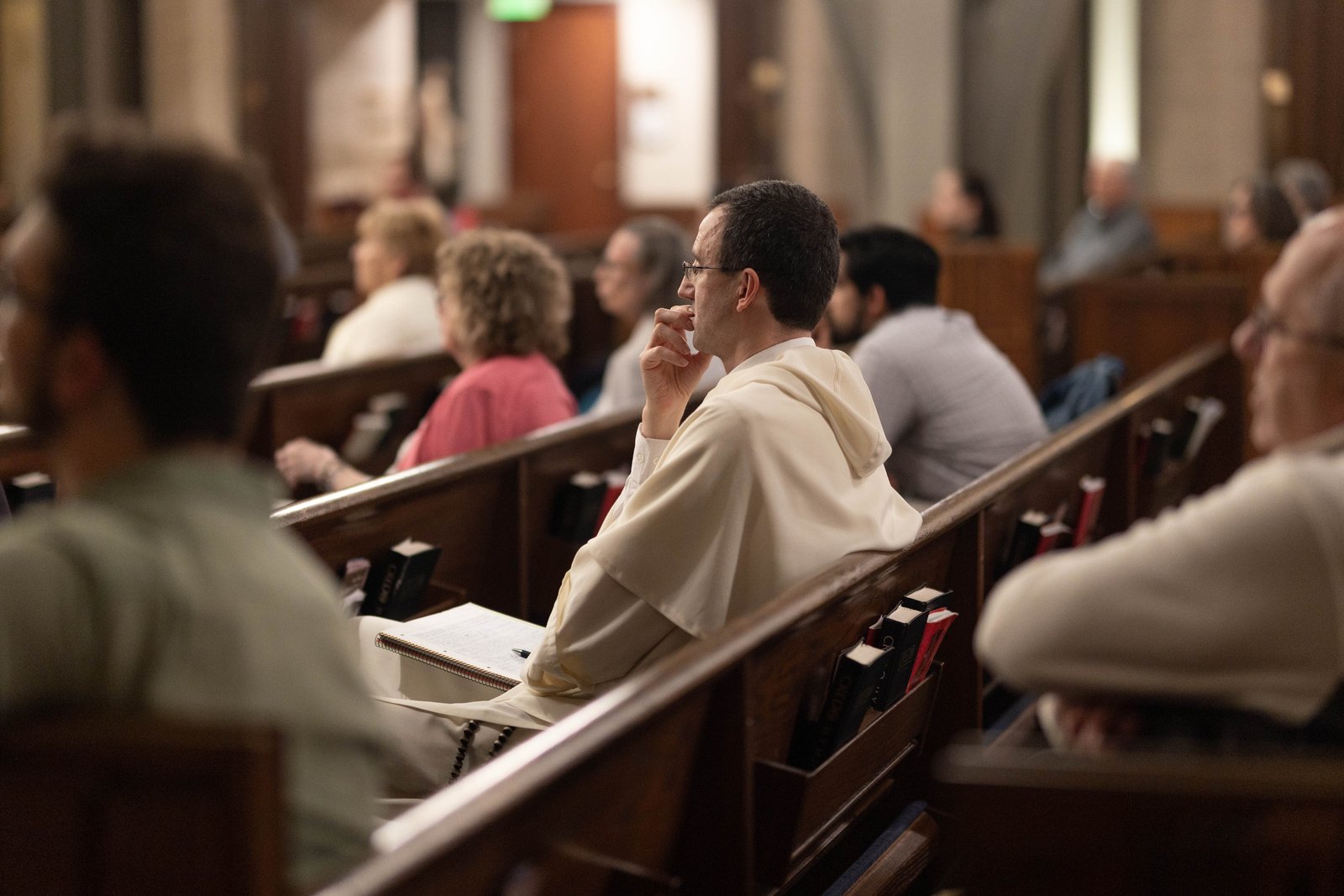Archbishop explores St. Thomas Aquinas' Eucharistic theology while giving keynote address at Ave Maria University conference
AVE MARIA, Fla. — As the U.S. Church prepares for the culmination of the U.S. Conference of Catholic Bishops’ three-year National Eucharistic Revival, several prominent theologians spoke Feb. 1-3 during a conference exploring the Eucharist’s roots in the theology of one of the Church’s foremost thinkers.
The Aquinas Center for Theological Renewal at Ave Maria University in Florida and the Thomistic Institute of the Pontifical Faculty of the Dominican House of Studies in Washington, D.C., co-sponsored the conference, “Thomas Aquinas and the Eucharist: Pathways to Revival.”
The purpose of the conference was to draw upon St. Thomas Aquinas’ writings for “theological, spiritual, pastoral and evangelistic pathways in the Eucharistic Revival,” according to the Thomistic Institute’s website.
The great saint and doctor of the Church has influenced Catholic thought for centuries, and his theology has been “a touchstone for the Church’s magisterial teaching on the Eucharist over the centuries, and the Church gives him an unparalleled position in Eucharistic theology and worship,” the institute said.
Detroit Archbishop Allen H. Vigneron gave a keynote address on the second night of the conference, outlining the Church’s belief in the Eucharist as a “pledge of future glory” and a foretaste of the vision of God reserved for the saints in heaven, both themes found in the theology of St. Thomas Aquinas.
Archbishop Vigneron’s talk explored the meaning of the Eucharist as it relates to the eschatological future of the Church and the fulfillment of time, drawing upon biblical, papal and conciliar texts and traditions to emphasize the celebration of the Blessed Sacrament as an anticipation of the graces of heaven, Christ’s promise to return, and as a means of unifying God’s kingdom on earth.
“As the memorial of the Last Supper, the Eucharistic celebration keeps alive in the hearts and minds of the faithful the Lord’s promise made Holy Thursday night that the effect of his death the next day would be the definitive establishment of the Kingdom,” Archbishop Vigneron said. “In this, as he establishes the Eucharist, Christ is making the eschaton present as both something he is identifying and as something he is promising.”
Because Jesus is God, and God is simultaneously present in past, present and future, the mystery of Jesus’ Real Presence in the Eucharist makes what seems beyond human grasp — namely, the future promise of the beatific vision — tangible and within reach, Archbishop Vigneron said.
Similarly, the practice of giving the Eucharist as viaticum to the dying is a way to prepare believers for eternal life, signifying the sacrament’s real future character, he said.

“Just as the substantial presence of Christ here and now makes possible the real presence of what is past, is it not this substantial presence here and now of Christ that makes possible the real presence of what is future?” the archbishop asked.
Such a realization that the fulfillment of all time is contained within the Blessed Sacrament ought to move Catholics to action in the here and now, which is one of the goals of the Eucharistic Revival, Archbishop Vigneron added.
“A deeper awareness of the presence of Christ in the Blessed Sacrament will cause us to celebrate the Eucharist more reverently; to recognize what we are about at Mass will shape our behavior at Mass,” the archbishop said. “This dynamic operates in the other direction as well. Just as recognition enhances behavior, so too does behavior enhance recognition; behavior shaped in accord with the doctrine of the Real Presence calls everyone, whether fervent or tepid in their Eucharistic faith, to deepen their adherence to this truth.”
By bringing the Church’s belief in the Real Presence as a sign and promise of what is to come into the public square, Catholics can testify to the fact that Christ — not the fruitless quest to build a utopia centered on flawed human ideals — is the ultimate consummation of history.
“In the face of this challenge which we are living through today, the disciples of Christ have a pressing responsibility to confront this immanent eschatology and name it as a counterfeit, a ‘pseudo-eschatology,’” Archbishop Vigneron said.
One way for the people of God to do this, he said, “is to recognize the true eschaton made really present in the Blessed Sacrament.”
Doing so will be “a blessing not only for themselves, but also for the earthly city wherein they are citizens,” Archbishop Vigneron said.
Other speakers included Fr. Bernhard Blankenhorn of the University of Fribourg, who spoke about St. Thomas Aquinas and John Scotus’ theology relating to the celebrant of the Eucharistic sacrifice; Fr. Romanus Cessario, OP, of Ave Maria University, who spoke about “The Priest and the Eucharist,” and Fr. Reginald Lynch, OP, of the Dominican House of Studies, who gave a presentation on the Thomistic tradition of moral and mystical signification in the Eucharist.











